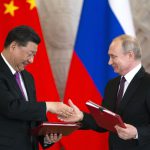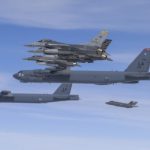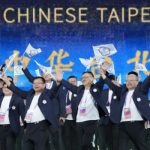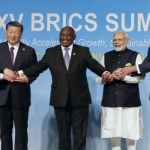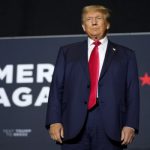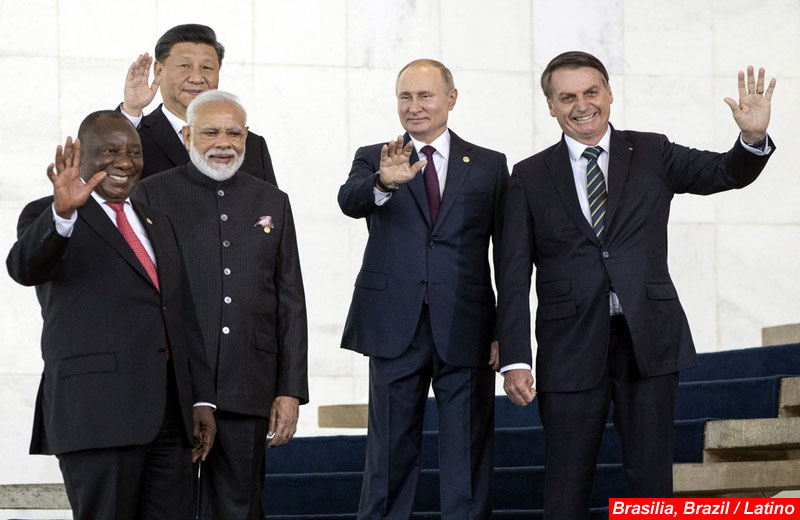
BRASILIA, Brazil (AP) — Members of the BRICS group of nations said Thursday that they are committed to implementing the Paris climate agreement and there cannot be a military solution to Syria’s conflict.
The declaration issued by leaders of Brazil, Russia, India, China and South Africa at a summit in Brasilia stressed commitment to shoring up multilateralism and the United Nation’s central role in international issues.
Russia’s Vladimir Putin and China’s Xi Jinping earlier particularly urged large emerging nations to assume a larger role in multilateral institutions.
“BRICS states should take up the leading role in U.N. with more initiative,” Putin said. “We should be more active in promoting a peaceful agenda. We should uniting like-minded countries to resolve essential global and regional issues.”
The statement committed to Syria’s “territorial integrity,” just weeks after Russia struck an agreement with Turkey to create a safe zone along the Turkey-Syria border following Turkey’s incursion there.
It also supported a two-state solution for Israel, saying it would allow Israelis and Palestinians to live together peacefully. Brazil’s Jair Bolsonaro has forged close ties with Israel’s Prime Minister Benjamin Netanyahu, helping drive his support among Brazilian Jews and evangelical Christians.
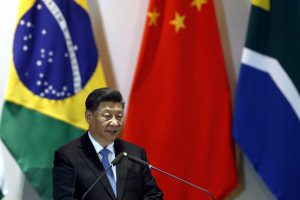
Bolsonaro last year proposed moving Brazil’s Israel embassy to Jerusalem, which would’ve meant shifting traditional foreign policy away from support of a two-state solution and vexed Arab nations. Last month, Bolsonaro toured three Arab countries — Saudi Arabia, Qatar and the United Arab Emirates — and patched up relations.
The statement from the BRICS also expressed “serious concern” with the possibility of an arms race in space, and said negotiation of a binding multilateral instrument for the issue is urgently needed. Bolsonaro in his speech highlighted the advance of a “constellation” of BRICS satellites.
The statement also called for greater influence of emerging markets at the International Monetary Fund, and for reform of the World Trade Organization to guarantee its efficacy in the face of current and future challenges. Trade is an issue of particular concern to China, which is in the midst of a trade war with the U.S.
“Economic globalization is facing some reversals, which to some extent reveals the deficiencies, the failures present in the system of international governance,” Xi said. He added that BRICS nations should “pressure in favor of reform of the global governance system. We should defend multilateralism, and increase the voice and weight of emerging countries.”
Putin encourages BRICS to collaborate on anti-virus programs
Russian President Vladimir Putin told fellow leaders of the BRICS group of emerging economy nations Wednesday that he supports more cooperation in information and computing.
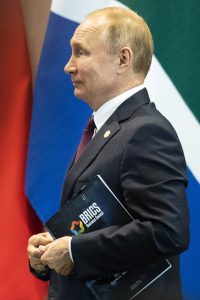
“We would like the other countries to look at our advances in those areas to participate with us, including in anti-virus programs that are fundamental for the information sector,” Putin said.
Speaking at an event for business executives, Putin also told the leaders of Brazil, India, China and South Africa that Russia has proposed a data-exchange network to help small- and medium-size companies in their nations to find suppliers more efficiently.
The five leaders gathered in Brazil’s capital underscored in speeches Wednesday night their greater integration aimed at boosting the countries’ economic growth.
Chinese President Xi Jinping said mounting protectionism and threats in the world have eroded international trade and investment, weighing down global growth.
China is in the midst of trade fight with the U.S. that has caused economic forecasts to slide.
Still, Xi said, the outlook for continued Chinese growth provides opportunities for the world.
“Looking forward, China’s resolve to open its market remains unchanged and so does its positive growth trajectory,” Xi said.
Prime Minister Narenda Modi of India said that taxation and customs process have become simpler between the five countries and that the business environment is becoming more conducive. But he asked business leaders for their help.
“Inter-BRICS trade and investment targets must be more ambitious. Your suggestions for further reducing trade costs between us will be very useful,” Modi said. “I would also like to request that we identify priority business sectors for us in the next 10 years and on the basis of these we create a blueprint for inter-BRICS cooperation.”
On Thursday, the leaders will hold the plenary session of the BRICS session and hold bilateral meetings.
____
Newsroom | theworldmail.co.uk
Source/Contribution/Photo Credit by Associated Press

